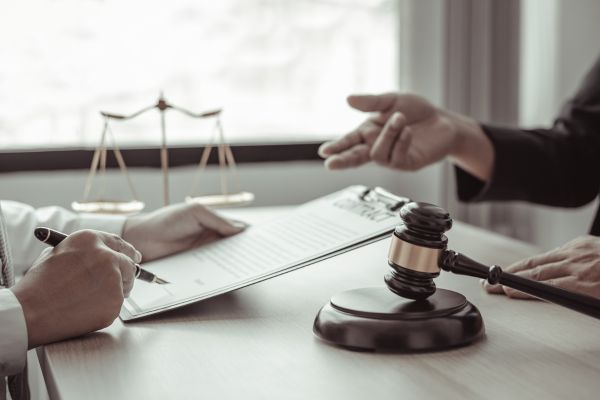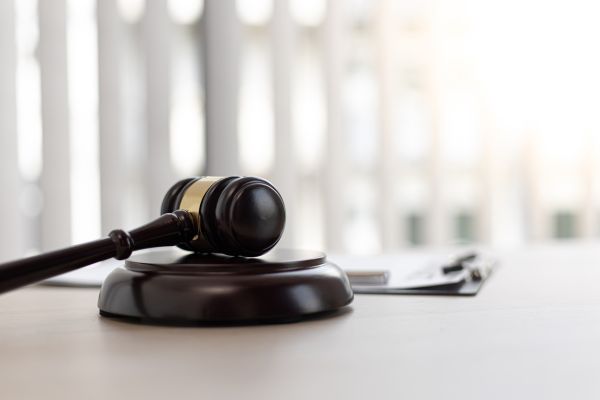The Constitutional validity of the Tenth Schedule, popularly referred to as the Anti-defection laws, faced scrutiny for the first time in the case of Kihoto Hollohon V. Zachilhu[1]. The Tenth Schedule provides a comprehensive code against unprincipled floor-crossing applicable to all elected members to a House,whether affiliated with a political party, independently elected members, or nominated members to the Rajya Sabha.[2]
Instituted by the Constitution (Fifty-Second Amendment) Act, 1985, the Schedule leads to the disqualification of a member of a House if he voluntarily leaves the political party that fielded him, or votes or abstains from voting in the House in derogation of their party’s mandate without prior permission or subsequent condonation of the same. Moreover, independent members would attract provisions of the Tenth Schedule if they join another political party after induction into the House. Similarly, a nominated member to the House is liable to be disqualified if they join a political party after six months of their nomination.
The case at hand raised pertinent questions as to the validity of disqualification from the House on the grounds of defection, the ouster of the Court’s jurisdiction vis-à-vis disqualification for defection as purported in paragraph 7 of the Schedule, theinvestiture of power on the Speaker/Chairman to decide such matters, and the amenability of their decisions to judicial review.
Dissecting the Vice of Aaya Ram, Gaya Ram
Defection is unethical to its core. Abandoning the political party that secured one their seat in the House for undue gain reeks of a weak resolve and a warped character, and erodes the public’s belief in parliamentary democracy. Furthermore, a malevolent dismissal of the mandate of the political party one belongs to under the garb of freedom of expression embarrasses its public image, popularity and credibility.The elected members to the House are incumbent upon their duty to represent the people. Debate, discussion and presentation of opinions form the core of any Parliament. If the House is fraught with floor-crossing, it hampers its functioning and amounts to a brazen jeer at democracy.
It is against such vice that the anti-defection laws operate. Arguments to the contrary,accusing such laws of stifling democracy by subverting the members’ rights of expression and dissent,are unwarranted. As the Court in Kihoto Hollohon highlighted, the disqualification imported by Paragraph 2 of the Tenth Schedule is not indefinite. A disqualified member can be re-elected to the House. Honest dissenters can resign and again run for the elections with a political party that aligns with their beliefs or independently. Sincere dissidents would not be apprehensive of such an idea, but defectors would be deterred.
Accordingly, freedom of speech, expression and dissent cannot be a source of immunity for defectors, nor can they siphon off impunity from parliamentary privileges. Selfish interests cannot be allowed to undermine the working of the House.
Can the Legislature Bar Judicial Review of Matters of Disqualification For Defection?
Notably, Paragraph 7 of the Schedule provided for an absolute ouster of the jurisdiction of the Courts under the Tenth Schedule,effecting a change in Chapter VI of Part V (Art. 136) and Chapter V of Part VI (Arts. 226 and 227). Such fundamental alteration of the Constitutionmaybe done only in accordancewith a special procedure laid downunder the Proviso (b) to Article 368(2) of the Indian Constitution,[3]which requires the ratification of such amendments by the State Legislatures.
Twoquestions arose for the Court’s consideration: firstly,can the legislature bar the Courts from adjudicating upon matters arising from the Tenth Schedule? Secondly, is the Tenth Schedule liable to be held invalid on the account ofnon-compliance with Proviso (b) to Article 368(2)? Regarding the former, the Hon’ble Bench opined that extinguishing the scope of judicial review is constitutionally unjustified. Therefore, they must strike down Paragraph 7. However, in dealing with the latter, the majority opined that applying the doctrine of severability, Paragraph 7 may be removed, with the rest of the Schedule retaining validity.
The reasoning provided by the Court was that theprocedural limitation imposed byProviso(b) to Article 368(2) does not form a “Condition precedent” for the presentation of any and every amendment Bill (which does not effect a change in the parts specifically mentioned therein) before the President. Since the substantive provisions of the Tenth Schedule stand independent of Paragraph 7, the Constitution (Fifty-Second Amendment) Act of 1985in as much as it introduces the Tenth Schedule excluding the Paragraph,does not attract the Proviso, rendering it Constitutional.
Is the Final Authority Given to the Speaker/Chairman in Cases of Disqualification for Defection Justified?
While deciding the validity of the investiture of ultimateauthority on the Speaker/Chairman to adjudicate on matters under the Schedule, Kihoto Hollohon advanced extraordinary confidence upon the office. The holding in as much as it rejected all possibilities of political bias in the decisions of the presiding officers,is a pill to swallow.
Time and again, the Courts have reiterated their belief in the high office of the Speaker/Chairman, at times being described as the “very embodiment of propriety and impartiality”.[4] However, history has not entirely testified in this favour. In an Instance, twenty-two members of the Congress party and twelve members of the Bahujan Samaj Party defected to the Bhartiya Janata Party in the Uttar Pradesh Legislative Assembly in 1997. The complaint of the BSP to the Speaker, who belonged to the BJP, was of no avail.[5] In another instance, in 2007, the Speakerdecided in favour of the defectors, which, when the Court intervened, was discovered to be unconstitutional.[6]
Such incidents demonstrate that the office is not estranged to bias. It is not intended to question the high tradition of the great office, but rather submit to the notion that humans err. It seems difficult to concur with the rationale of the Court that the “Robes of the Speaker do change and elevate the man inside”.[7]
The Report of the ‘National Commission to Review the Working of the Constitution’apprised that the Speakers have been observed to act in derogation of the Tenth Schedule guided by political bias.[8] At several instances, the ‘All-India Presiding Officers’ Conference’ has also raised concerns over the power of the Speaker in matters of disqualification under the anti-defection mechanism.[9] Observing the recent trend, bodies such as the NCRWC have recommended investing the power to decide issues of disqualification on the grounds of defection on an independent body other than the Speaker, such as the Election Commission.
The Apex Court, in the case of Jagjit Singh V. State of Haryana, deferred to this recommendation.[10] At the end of the day, the Speaker, save the Chairman, is an authority within the House. Despite his “Undoubtedly high office” and the “Considerable aura with the attribute of impartiality”[11] his tenure is dependent on the will of the majority therein.[12] Hence, theirappraisal must not be raised on a pedestal out of human reach.
Can the Speaker/Chairman be Made The Final Arbiter in Cases of Disqualification For Defection?
In Kihoto Hollohon, it was settled that the decision of a Speaker/Chairman concerning the disqualification of a member of a House on grounds of defection is within the reach of judicial review. In attributing finality to the decision of the Speaker/Chairman[13], the Legislature had not dispensed with the right to approach the Courts, which still exists in the Constitution in the form of Articles 136, 226 and 227. Whathadmerely been done was the curtailment of the remedy to challenge the decision before the Courts. Denial of a remedy when you have the right to it is prima facie arbitrary and unjustifiable.
The legislature’s intention in attributing finality to the decision of the presiding officers has been to deal with its affairs conclusively. However, the power to adjudicate disputes is distinctly judicial. The judiciary is the custodian of rights in India. For convenience, interlocutory power may be vested in the presiding officers, but the Courts remain the final arbiter.
Are Mass Defections a Lesser Evil?
It was called to the attention of the Court in Kihoto Hollohon that the distinction between ‘Defection’ and ‘Split’as considered in Paragraph 3 of the Tenth Schedule is negligible. Bulk defections cannot be condoned while single acts of floor-crossing are revulsed. However, the Court’s responsedid not align with this substance. It entailed that “A single act of floor-crossing presumes lure of office or money. However, such an act by a group of people presumes credence and bona fides.” Nevertheless, it was not long before the legislature realised the mischief harboured by such a distinction as purported in Paragraph 3.After several recommendations, in 2003,[14]the excuse accorded to splits was scrapped at last.
Conclusion
Defections are a great evil that our democracy faces today. The lust for power is potent enough to corrupt even the virtuous. The Kihoto Hollohon ruling is a cornerstone in the history of anti-defection laws. The Court pointed out the iniquity of defection and the exigency to curb it. It upheld the cogency of the Tenth Schedule in as much as it strived to outlaw defection. Although, the ouster of the jurisdiction of the Courts may not have landed in its good books. The Court reposed great confidence in the office of the Speaker/Chairman, while being astute enough to leave scope of judicial review to their decisions. There may have been speckles where the Court resorted to abstruse reasoning; nevertheless, the judgement of Kihoto Hollohon advanced the Nation one step further towards confronting the predicament of defection and remains to enjoy a revered status in academia.
[1]Kihoto Hollohon V. Zachilhu 1992 SCR (1) 686.
[2] The Constitution of India 1950, Tenth Sch Para 2.
[3] The Constitution of India 1950, Article 368.
[4] Gopala Krishna Belur V. B.S. Yeddiyurappa 2010 SCC Online Kar 1315.
[5] Mayawati v. Markendeya Chand (1998) 7 SCC 517.
[6] Rajendra Singh Rana v. Swami Prasad Maurya (2007) 4 SCC 270.
[7] Kihoto Hollohon V. Zachilhu 1992 Supp (2) SCC 651.
[8] Department of Legal Affairs, ‘Report of the National Commission to Review the Working of the Constitution’, (Department of Legal Affairs 31 March 2002) https://legalaffairs.gov.in/volume-1.
[9] Liz Matthew, ‘Urgent need to rationalise powers and jurisdictions of presiding officers: LS Speaker Om Birla’ The Indian Express, (New Delhi, November 15 2021) https://indianexpress.com/article/india/rationalise-powers-jurisdictions-presiding-officers-ls-speaker-om-birla-7624464/.
[10] Jagjit Singh V. State of Haryana (2006) 11 SCC 1 “without meaning disrespect for any particular speaker in the country, but only going some of the events in the recent past, certain questions have been raised about the confidence in the matter of impartiality on some issues having political overtones which are undecided by the speaker in his capacity as a tribunal. It has been urged that if not checked, it may ultimately affect the high office of the speaker”.
[11]Kihoto (n 10).
[12] As observed from the minority view in Kihoto Hollohon V. Zachilhu 1992 Supp (2) SCC 651.
[13] The Constitution of India 1950, Tenth SchPara6.
[14] The Constitution (Ninety-First Amendment) Act2003.
Author Name- Tamanna Singh, 3rd Year, B.A. L.L.B Programme at Symbiosis Law School, NOIDA






